► Negative myths about EVs gaining media traction
► Broadcaster Quentin Willson fighting back
► Little Book of EV Myths available to download
New electric car registrations posted a UK record high in March 2024, with more than 48,000 going to new owners wearing a 24 plate. But electric’s share of the market actually fell – and the relentless tide of anti-EV propaganda is surely making some car buyers hold back from going zero emission.
Renowned motoring journalist and TV presenter Quentin Willson is one of a growing band of campaigners battling to ensure EVs get a fair hearing. ‘In my 30 years of writing and broadcasting about cars, I’ve never seen misinformation and misunderstanding running at such a high rate. That’s why we’ve published The Little Book of EV Myths,’ he tells CAR.
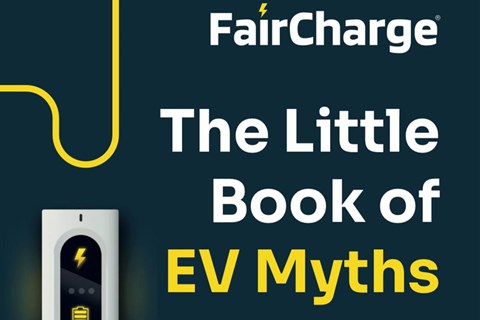
Willson’s FairCharge lobby group – which campaigns for the 20 per cent VAT rate on public charging to be cut to 5 per cent, the same level as for domestic consumption – has teamed up with experts in insurance, energy generation, large fleet operation and other areas to publish well-sourced facts around EV ownership. You can download it for free HERE.
Enter CAR’s BYD £5000 prize draw – and read about our electric lap record
‘Someone said to me the other day “I’m not going to buy an electric car because they throw the old batteries into the sea!,”’ says the exasperated Classic Cars columnist, who also drives a Tesla. ‘Or you hear that EVs are more polluting than combustion cars, they cost more to maintain, their batteries fail after 3-4 years or they catch fire more than combustion cars,’
‘It’s nonsense and it’s high time to push back against this, because it gets amplified millions of times by people on social media.’
Stop BS about electric cars
Willson has teamed up with actor Robert Llewellyn – the face of YouTube channel the Fully Charged Show – and its CEO Dan Caesar to launch StopBurningStuff, an umbrella campaign to combat EV misinformation. Or #StopBS to use Llewellyn’s pointed abbreviation.
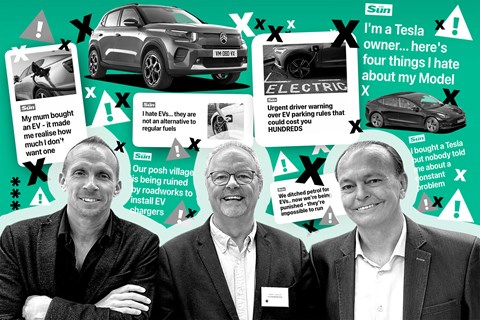 The Stop Burning Stuff alliance: Dan Caesar, Robert Llewellyn and Quentin Willson (left to right)
The Stop Burning Stuff alliance: Dan Caesar, Robert Llewellyn and Quentin Willson (left to right)
Speaking at the launch in Westminster, London, Robert Llewellyn railed against the ‘incredible ramp up of misinformation and weird stories: of car parks and bridges collapsing, explosions and fires reported in newspapers and online.’
‘A lie will go all around the world while the truth is still pulling its boots on,’ continues Dan Caesar, Fully Charged’s CEO. ‘The myth that the carbon debt embedded in an EV takes 48,000 miles to pay back is surfacing now in America and has been used in the Senate.’
The politically stoked culture wars are well and truly engulfing the electric car. Campaigning at a Michigan autos parts plant last September, former President Donald Trump claimed ‘EVs are bad…for the environment’ and can only ‘drive for 15 minutes before you have to get a charge’ – a preposterous lie.
Around the same time, Prime Minister Rishi Sunak delayed the UK’s ban on new combustion engine cars from 2030 to 2035, ostensibly because he thinks siding with motorists who perceive EVs to be costlier to own is a vote-winner.
What are the top 10 myths about EVs?
Here are the top 10 myths about electric cars – tackled by Quentin Willson, Robert Llewellyn, the National Grid’s fleet manager Lorna McAtear and electrochemist Euan McTurk of Pluglife Consulting – with some additional facts from CAR magazine’s extensive testing from our Electric Cars Guide channel on Apple News+:
1. Are EVs really clean?
‘The idea that a combustion car could be more green than an EV is bizarrely embedded in the internet!’ fumes Quentin Willson.
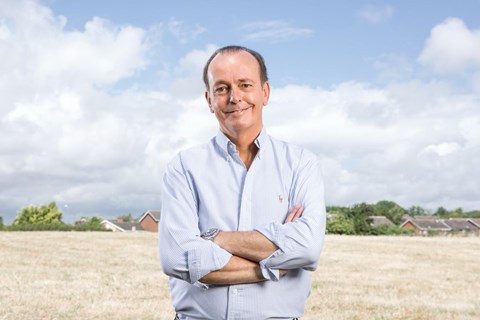
It’s widely known that manufacturing a combustion car is less carbon intensive than making an EV, though the latter’s carbon footprint is declining as more green energy powers assembly plants and car makers reduce rare earths in batteries and electric motors. ‘An EV’s carbon debt takes a year and up to 17,000 miles to pay back, depending on the charging grid and how it’s driven,’ explains Willson. ‘After that it’s in huge credit as there are no emissions.’
2. Cobalt mining is unethical
The #SBS spokespeople are nuanced on cobalt mining, referencing child slavery in cobalt mines in the Democratic Republic of Congo and human rights abuses in unregulated Chinese mines. ‘But major manufacturers have signed up to the Fair Cobalt Alliance which aims to put children in schools not mines, and the amount of cobalt in batteries is down 90 per cent since 2011.’ And in the interest of balance, cobalt is used as a catalyst in refining crude oil, points out Robert Llewellyn.
3. EV batteries aren’t recyclable
Car manufacturers such as Volkswagen Group have taken the media inside its battery recycling facilities, and some early Nissan Leaf batteries have a second life powering the Amsterdam Arena. There’s also a nascent battery recycling industry emerging, with US player Ecobat establishing a UK operation to expand its lead battery recycling into lithium cells.
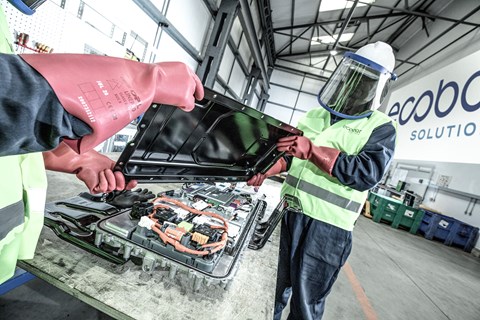
Electrochemist Euan McTurk reckons growing demand means it’s financially viable to extend cobalt and copper reuse into lithium-ion phosphate, as the industry chases widespread recycling of all battery materials.
4. Do batteries blow up?
Social media conspiracy theorists jumped to the conclusion that an EV caused October 2023’s Luton Airport car park conflagration; the fire brigade confirmed a diesel sparked it. The anti-EV faction conveniently overlook that highly flammable fuel is essential to combustion engines; Quentin Willson claims EVs are 19 times less likely to catch fire.
Of course when they do they go up the fires are incredibly intense and fire brigades are seeking guidelines and best practice on what to expect from each manufacturer’s batteries. BYD reckons its LFP cell chemistry can withstand having a nail driven through it – watch the fascinating video in CAR’s BYD battery story here.
One vivid moment of the #SBS launch saw representatives of big fleet providers Lex Autolease/Black Horse (165,000 EVs) and Tusker Direct (23,000 EVs) both solemnly declare none of their electric vehicles had ever self-immolated.
5. EVs eat through tyres and brakes
Similarly the lived experience of the Tusker and Lex fleets shows that combustion and electric cars consume tyres at an equal rate. Researcher Euan McTurk investigated this for an RAC study and dismissed EVs as being harder on tyres as ‘certifiable nonsense….[unless] you always drive like you stole it!’ And given that EVs’ electric motors enable regenerative braking, the friction brakes are subjected to less wear and tear and should last longer.
6. Can the UK’s National Grid cope?
‘Anyone who says the grid won’t be able to cope with the energy transition is expecting us not to build anything again,’ says Lorna McAtear, the National Grid’s head of fleet. ‘We’ll put in more onshore wind in the next seven years than the last 30 years, and connection requests are predicted to climb from 165 to 2000 per day.’
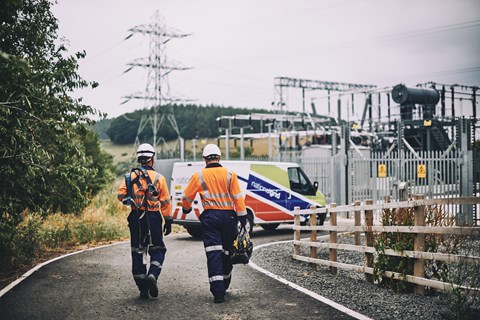 Credit: Forestones / Bethany Clarke
Credit: Forestones / Bethany Clarke
The advent of low-consumption LED light bulbs has given the grid more headroom, and in the next few years bi-directional charging (from electric cars and other storage solutions) will feed energy back into the grid on demand. All good. But it’s well-known that the grid is struggling to keep pace with demand for new connections, and is having to reorganise to ease bottlenecks in connecting new chargers for example.
7. Can you charge on the road?
Zap-Map’s latest data for the first three months of 2024 calculated the UK now has installed 59,590 chargers – with 5725 added in the first quarter of 2024, a pace up 35 per cent on Q1 2023 installations. However the government set a target of 300,000 chargers across the country by 2030.
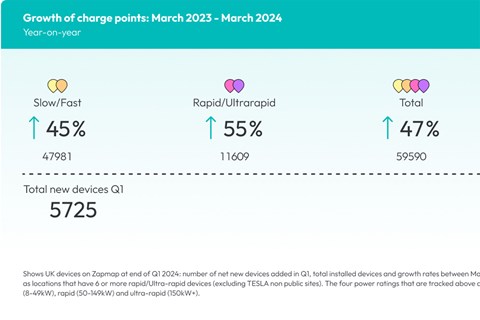
‘I think that’s a figure [former Prime Minister] Boris Johnson plucked out of the air and it’s a challenge,’ says Quentin Willson. But the existing charger utilisation rate is about 15 per cent, and EV-sceptics often overlook that you can usually charge at home if you have a driveway. Unfortunately charging on long journeys can still be a lottery – just ask yourself how often will you drive an EV hundreds of miles?
8. Will EVs crush car parks?
Robert Llewellyn reckons the top 10 heaviest cars in the UK are all combustion engine models, with the 2.5-tonne Tesla Model X weighing in eleventh. But the Model 3 is 1.8-tonnes, roughly comparable with German premium rivals. ‘Are they really going to break down bridges and car parks?’ he asks.
9. Winter hammers EV range
‘On average EVs have about a 20% loss of battery efficiency in cold weather,’ claims Quentin Willson. ‘But the American Department of Energy website [states] about 15 per cent is lost in a gas car in wintry weather. So EVs are pretty similar to petrol cars but that question is typically never asked.’
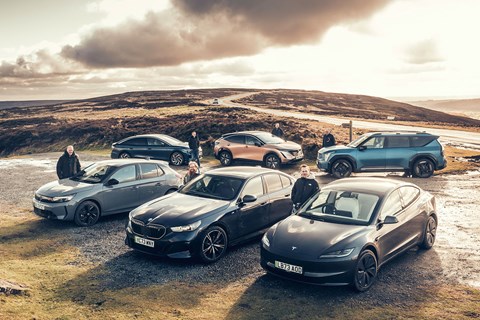 Tesla’s new Model 3 met BMW i5, Kia EV9 and VW ID.7 in our EVs vs Winter II test
Tesla’s new Model 3 met BMW i5, Kia EV9 and VW ID.7 in our EVs vs Winter II test
Car’s second annual EVs vs Winter test (click to read it for free in the CAR app) recorded an average 28% shortfall against six of the latest EVs’ official ranges, admittedly in a tough test mixing bad weather and lots of motorway and fast B-road driving. That was also an improvement over our 2023 test, where the miss was by 33%.
10. EVs are unaffordable
Although list prices of new EVs are falling and 2024 will bring the £23k Citroën e-C3 and £14,995 Dacia Spring, electric cars are yet to hit price parity with combustion cars. ‘They’re still too expensive, it’s an average £10k difference,’ says Quentin Willson.
‘But why think about that large capital sum when the total cost of ownership is significantly less than a combustion car. [Fleet operator] Tusker calculates 31 per cent lower maintenance costs across your life cycle plus [cheaper] fuel. But that [acquisition] figure is getting in the way.’
Who’s spreading misinformation and why?
Stop Burning Stuff has the newspaper media in its cross-hairs for spreading misinformation. Willson and Llewellyn reckon The Sun published a negative story about EVs for 160 days in a row at its negative peak in summer 2023.
CAR put this to The Sun which responded: ‘We are a consumer brand which takes into account our readers’ needs including the cost of living crisis, budgets, electric car infrastructure difficulties. Our articles are fair and balanced and take into account different views and opinions rather than just promoting. Many of those you [reference] are opinions of some of our writers but this shouldn’t be taken as a reflection of our editorial policy on electric cars.’
Regardless it feels like The Sun is now publishing more balanced EV coverage, even to the extent of running a piece on EV myths. But The Telegraph – sample headline: ‘Electric cars are made of pollution and human misery – and MailOnline have form too: at the #SBS launch, Caesar showed a screen grab of 12 anti-EV stories from the preceding week, with the pair prominent.
‘The success of clickbait seemingly strengthened the resolve of those desperate for online clicks, particularly during 2023’s advertising downturn. Many of these stories are as preposterous as they are disprovable but in some quarters they are successfully dividing opinion,’ says the Fully Charged CEO.
What is #SBS going to do about it?
‘There are some publications that are intent on their [narrative] so we have to work with others to overpower their stories,’ says Claire Cullen, the head of #StopBurningStuff. ‘Where we see particularly inaccurate articles, we might address those and share the facts to demonstrate information is incorrect.’

Cullen’s team has launched an SBS website – ‘I like to call it a portal of truth’ – to share expert research and bust the myths that are shaping perceptions. Not only is it a useful media resource, but it’s aimed at anyone looking for an independent pro-EV voice, crowd-funded by supporters on Patreon.
Another important role is to lobby politicians: in her first few weeks in post, Cullen and Quentin Willson met the UK’s all-parliamentary group on EVs to discuss the PM’s delay to the ban on new combustion car sales. ‘We’re working with politicians to educate them too – the myths that exist in the everyday world exist for everybody.’